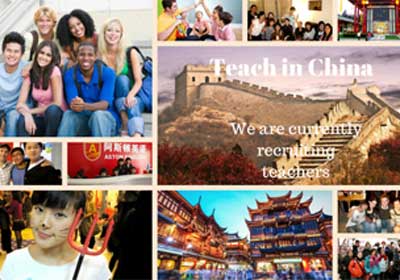On-the-Job: Teaching English Classes in China
In the States, I’m a part-time college teacher (a.k.a. slave). As a friend who was also going to teach in China remarked, “This is the first time we’re signing a year’s contract with medical benefits.”
The actual contract didn’t materialize until months into my assignment – so late that I never bothered to sign it. But my pay arrived regularly at the school’s accounting office in stacks of local currency so much larger than those of the Chinese teachers that I was embarrassed when the clerk insisted I count it. And I took good advantage of the clinic where doctors doled out a combination of Western drugs (and tested me over and over for allergy to penicillin) and Chinese remedies, which consisted of handfuls of herbal capsules to be taken several times a day.
China is a world of contradictions, and I both loved and hated my Chinese year, but love won by a long shot, and my year there changed my life.
My title was “Foreign Expert,” and my school was the Shanghai Institute of Foreign Trade, where my students hoped to become entrepreneurs or at least assistants or interpreters for entrepreneurs. It was a four-year college but looked more like a gathering of high school buildings. Tired flowers and a few bushes of lush blossoming color straggled across the mostly grassless grounds. There were two classroom buildings, a dining hall that doubled as a dance hall and center for meetings, what passed for a library with an indecipherably chaotic filing system, an office building with a clinic attached, and two dorms – one for students crowded six to a room, and one for the slightly less cramped Chinese faculty.
Like most of China, everything was concrete, everything was rundown, and everything was under constant reconstruction.
I had foreign privilege. The school housed me in the low-rent section of the Jin Jiang hotel, in whose classier rooms Zhou En Lai once opened China to Nixon. I had a bath – with more or less reliable hot water sometimes enjoyed by Chinese friends – and one small starkly furnished room all to myself. (“Don’t you get lonely there?” my Chinese friends asked – and I think they were sincere. My closet alone could have housed at least one grandmother.) Mornings, I caught the school bus or, if I was unlucky enough to miss it, elbowed my way onto the packed local buses that went out to the dusty market road in front of my school that was stacked with vendors of produce and live chickens.
My students were young men and women in their twenties, as giggly and romantically naive as freshmen in some 1950s high school in the rural Midwest, before the news came through of Elvis and James Dean. No one ever wanted to speak in class. Why should they, when their classmates laughed at every English mistake. I let them laugh at my attempts to speak Chinese in order to prove that we were equally inept. I played the clown, bobbing up and down the aisles, demonstrating the Charleston in literature class in order to introduce the twenties and F. Scott Fitzgerald. The students were used to memorizing teachers’ lecture notes, not to discussing their own thoughts. I gave them questions to consider in groups, and when I moved around the room, the groups began to follow me and melt together until I had one batch of boys and one of girls trailing me, hanging on my answers.
One day, I taught a chapter from Jack Kerouac’s On the Road. I knew I had to begin beyond zero in order to set a context for this alien world of counterculture freedom. What does it mean, I asked, to be “on the road”? Imagine that you own an old car. Imagine that you can leave your school, your job, your work unit and assigned apartment. You leave your family. Imagine there are endless superhighways crossing China, and you can drive off, not knowing where you’re going, not caring about your destination. Would you do it? A few adventurous souls were ready. One girl told me she would sit in the car for a week and think about it.
In class, my students demurred to my authority, but in the cafeteria, they elbowed ahead of me in line to fill their enameled bowls with jiaozi (a superior version of what are called potstickers in the U.S.) and a helping of spicy red pepper sauce.
Like Mao, I’m a believer in perpetual revolution, in stirring things up. I think he was the best thing that could have happened to China at that moment in history. I also think he made some grave mistakes. In my own revolutionary fervor, I suppose I’ve made mine too. Take, for example, the classroom lights at the school that were centrally controlled.
The school administration decided when the day was gray enough to turn the current on. Some of my students donned two pairs of glasses and still couldn’t read the chalkboard. I told the class it was time for action. I wrote a letter to the school’s bureaucrats that was full of phrases about how the progress of the Motherland depended on the 20-20 vision of its future leaders. Most of the students signed the letter, some of them took refuge in the English names they used in class. But they still signed.
One class applauded me when I read the letter to them – everyone enjoyed the propaganda about the Motherland. A week after I delivered the letter to the administration, the lights came one, controlled by each classroom’s switch. We were in control. And then, I had to teach the students about conservation. . .


 Teach English in Asia
Teach English in Asia  Cruise Ship Jobs
Cruise Ship Jobs  Alaska Fishing Industry Jobs
Alaska Fishing Industry Jobs  Sharing Economy / Gig Economy
Sharing Economy / Gig Economy 